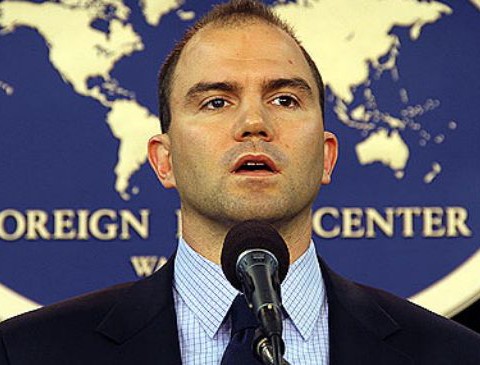The Destructive Power of Narrative
Recently, Darrow published a post, “All Black Lives Matter” that elicited some pushback. A DNA friend emailed Darrow to complain that what he wrote “isn’t a helpful narrative.”
We hear the term, “narrative,” more and more. But what do people mean when they use it?
Often, it is used as a straightforward synonym for “story,” or plot, or to describe a particular perspective. There is nothing wrong, of course, with stories. Fiction or non-fiction, everyone loves a great story. In fact, we need stories to help us make sense of things. God made us this way. The Bible itself is the remarkable true story of God and His unfolding redemptive plan in history. Jesus told powerful stories, parables, to convey great truths.
One kind of story is designed to mislead
But there is a particular understanding of “narrative” that I want to deal with over the course of several posts. These narratives are not merely “stories” but a particular kind of story crafted for a particular purpose. Such narratives have become a pervasive part of contemporary life, impacting the way we think about almost every important issue. Given this, is vital that we understand what these narratives are, how they function, and how we should respond to them as followers of Jesus Christ.
The New York Times Magazine recently ran a disturbing profile of Ben Rhodes that provides a perfect example of the kind of narrative I’ll be discussing in this series. The article is titled “The Aspiring Novelist Who Became Obama’s Foreign Policy Guru.”
 Rhodes is a 38-year old senior foreign policy advisor to President Obama. Yet, shockingly, he has almost no experience in foreign policy or foreign affairs. His undergraduate studies were in literature and fine arts, but as it turns out, this was exactly the kind of skill set the president wanted. He tasked Rhodes with crafting a narrative intended to sell his Iran policy, and ultimately the nuclear weapons deal that was ratified last year. And that is exactly what Rhodes did.
Rhodes is a 38-year old senior foreign policy advisor to President Obama. Yet, shockingly, he has almost no experience in foreign policy or foreign affairs. His undergraduate studies were in literature and fine arts, but as it turns out, this was exactly the kind of skill set the president wanted. He tasked Rhodes with crafting a narrative intended to sell his Iran policy, and ultimately the nuclear weapons deal that was ratified last year. And that is exactly what Rhodes did.
In the article, Rhodes boasts about creating a distorted narrative, confident that it could be sold to a compliant, and, in his own words, “know-nothing” media. He was able to create what he called “an echo chamber” where the new narrative would become established as elite conventional wisdom, and thereby lay the groundwork for the passage of the Iran nuclear deal, which is what ultimately happened.
Here is how the article’s author, David Samuels, describes Rhodes:
He is adept at constructing overarching plotlines with heroes and villains, their conflicts and motivations supported by flurries of carefully chosen adjectives, quotations and leaks from named and unnamed senior officials. He is the master shaper and retailer of Obama’s foreign-policy narratives …
Lee Smith of the Weekly Standard sums up Rhodes’ work this way:
For the last seven years the American public has been living through a postmodern narrative crafted by an extremely gifted and unspeakably cynical political operative whose job is to wage digital information campaigns designed to dismantle a several-decade old security architecture while lying about the nature of the Iranian regime.
Go here to read Smith’s article in its entirety.
Rhodes’ condescending attitude about creating such narratives to distort and manipulate, and ultimately achieve the president’s goal, is jarring. He seems to have no moral qualms about it, even though he is dealing with what could very well be a life-and-death issue.
For the rest of this series, when I use the word “narrative,” I’m referring to the kind of story that Ben Rhodes created. These are not merely “stories.” They are not morally neutral. Because such a story distorts the truth, it is both dangerous and destructive. A story like this almost always leads to the perversion of justice and an inversion of morality: Evil becomes good, and good becomes evil. There is a degree of malevolence behind such narratives and those that create them.
Such narratives are not a new phenomenon (in earlier times, they were described as “propaganda”), but today they have become pervasive. So much so, that it has become very hard to even know what the truth is about any given topic. Indeed, I believe that you can’t understand our present cultural moment without a clear grasp of what these narratives are, why they have become so pervasive, how they work, and why they are used.
Christians, as part of the culture, are not immune from their influence, and that has certainly been the case in my life. My own thinking, beliefs and behaviors have been shaped by several powerful narratives, and my own experience of being duped and manipulated by them has led to a desire to help other Christians be alert and open-eyed to this phenomenon.
Narrative can trap us in a web of distortion
Let’s start by examining a few important characteristics of narrative.
First, narratives are stories. They tend to be compelling, easy to grasp morality tales. They lean towards bold, simple plotlines. Good and evil are clearly defined. There are carefully crafted characters: Heroes, villains, victims.
Second, narratives are tools used to accomplish political, social or cultural objectives. They are employed to exert influence, and ultimately to shape policy and culture. You name the major issue of the day, whether global warming, LGBT rights, racial issues, a particular foreign policy, or whatever, narratives have been carefully crafted, promoted, and protected in order to advance a particular agenda. As I said, they are pervasive. They are part of the air we breathe.
Third, narratives work through distortion. They are portrayed as true, but in reality, they convey a highly distorted and ultimately false picture. Distortion works by focusing on a particular aspect of truth, or fact, or evidence, while purposefully ignoring or suppressing other related facts (and evidence) that are necessary to see a bigger picture. Building narratives around an element of truth has the benefit of giving them plausibility. This sense of credibility makes them easier to market.
Finally, narratives work by leveraging our emotions. They appeal to our heart and not our head, to our innate sense of justice, of right and wrong. We want them to be true, even if facts and evidence call them into question. This is what makes them so powerful, and so dangerous.
In the next post, I’ll provide an example of a powerful narrative that held me in its sway for many years—a narrative about America’s history—and use it to illustrate all of the characteristics I just described.
- Scott Allen








4 Comments
Mo Dardinger
June 27, 2016 - 12:33 pmThis is a powerful post, Scott!
Clark Dahl
June 27, 2016 - 6:14 pmThe entire Obama administration is a false narrative. But if you just watch what he does you can clearly understand his objectives. Like Pelosi said we must pass the bill to see whats in it. Obama was elected without knowing what was in him, what he really believed. What amazes me is he was reelected. We are paying the price for being a compliant public willing to believe any foolish narrative..
Chris McReynolds
June 28, 2016 - 8:01 amScott, what a great subject to write about! It is, so very much, needed. We look forward to the series and to forwarding it on to friends. Greetings from Mexico! Chris and Francelia
cam
June 28, 2016 - 8:59 amVery well put. Thank you.